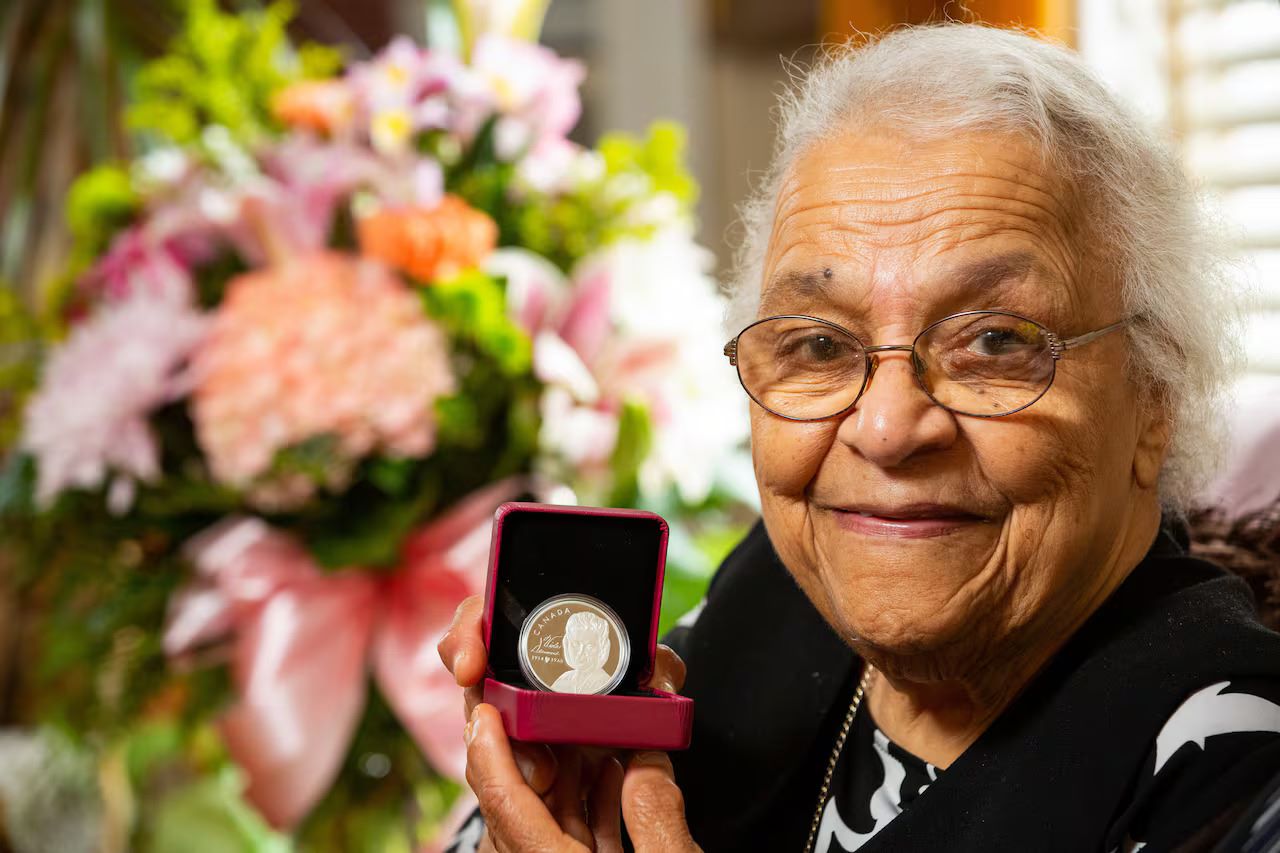
Who was Viola Desmond? Viola Desmond was a Canadian civil rights pioneer and businesswoman. Why is she significant? She famously challenged racial segregation in 1946 by refusing to leave a whites-only area of a movie theater in Nova Scotia. What did her actions lead to? Her brave stand against injustice became a catalyst for the civil rights movement in Canada. Did she face consequences? Yes, she was arrested, fined, and convicted of tax evasion, but her courage inspired many. How is she remembered today? Viola Desmond's legacy lives on, celebrated on Canada's $10 bill and through numerous awards and honors. Want to know more? Here are 37 facts about this remarkable woman.
Key Takeaways:
- Viola Desmond was a courageous Canadian activist who stood up against racial segregation, inspiring change and leaving a lasting impact on Canadian history.
- Her legacy continues to inspire future generations, with her story being celebrated through stamps, awards, and even appearing on the Canadian $10 bill.
Who Was Viola Desmond?
Viola Desmond was a Canadian civil rights activist and businesswoman. Her courageous stand against racial segregation in the 1940s has left a lasting impact on Canadian history. Here are some fascinating facts about her life and legacy.
- Born on July 6, 1914, in Halifax, Nova Scotia, Viola Desmond was one of ten children.
- Her parents were James Albert and Gwendolin Irene Davis, who were active in their community.
- Viola initially trained as a teacher but later pursued a career in beauty culture.
- She attended beauty schools in Montreal, Atlantic City, and New York.
- In 1937, she opened her own beauty salon, "Vi's Studio of Beauty Culture," in Halifax.
The Incident at the Roseland Theatre
Viola Desmond is best known for her brave act of defiance at the Roseland Theatre in New Glasgow, Nova Scotia. This event became a pivotal moment in the fight against racial segregation in Canada.
- On November 8, 1946, Viola's car broke down in New Glasgow, prompting her to visit the Roseland Theatre.
- She bought a ticket for the main floor but was told to sit in the balcony, which was designated for Black patrons.
- Viola refused to move and was forcibly removed from the theatre.
- She spent 12 hours in jail and was fined $20 for tax evasion, as the main floor ticket was one cent more expensive.
- Desmond's act of defiance was not initially recognized as a protest against racial segregation.
Legal Battle and Legacy
Viola Desmond's courageous stand led to a legal battle that highlighted the racial injustices in Canada. Her legacy continues to inspire future generations.
- Viola hired lawyer Frederick William Bissett to fight her conviction.
- The case was brought before the Nova Scotia Supreme Court, but her conviction was upheld.
- Despite losing the case, her actions sparked discussions about racial discrimination in Canada.
- In 2010, the government of Nova Scotia issued a posthumous pardon to Viola Desmond.
- The pardon was accompanied by an apology from the Lieutenant Governor of Nova Scotia.
Recognition and Honors
Viola Desmond's contributions to civil rights have been recognized in various ways, ensuring her story is remembered.
- In 2012, Canada Post issued a commemorative stamp in her honor.
- The Viola Desmond Chair in Social Justice was established at Cape Breton University.
- In 2016, a Heritage Minute about her life was released by Historica Canada.
- Viola Desmond was named a National Historic Person by the Canadian government in 2018.
- Her portrait was chosen to appear on the Canadian $10 bill, making her the first Canadian woman to be featured on a regularly circulating banknote.
Personal Life and Business Ventures
Beyond her activism, Viola Desmond was a successful businesswoman and a dedicated community member.
- She founded the Desmond School of Beauty Culture, which provided training and employment opportunities for Black women.
- Viola also launched a line of beauty products tailored for Black women.
- She was married to Jack Desmond, who supported her business ventures.
- The couple did not have any children.
- Viola was an active member of the African United Baptist Association.
Impact on Canadian Society
Viola Desmond's actions have had a lasting impact on Canadian society, influencing civil rights movements and inspiring future generations.
- Her story has been included in Canadian school curricula.
- Viola's legacy has been celebrated in various books, documentaries, and plays.
- The Viola Desmond Awards are presented annually to recognize the achievements of Black women in Canada.
- Her story has been featured in the Canadian Museum for Human Rights.
- In 2018, Halifax named a ferry in her honor.
Continuing the Fight for Equality
Viola Desmond's legacy continues to inspire those fighting for equality and justice in Canada and beyond.
- Her story has been used to educate people about the history of racial segregation in Canada.
- Viola's actions have been compared to those of Rosa Parks in the United States.
- Her legacy has inspired other civil rights activists in Canada.
- The Viola Desmond Foundation was established to support social justice initiatives.
- Her story has been included in various educational programs and workshops.
Remembering Viola Desmond
Viola Desmond's courage and determination have left an indelible mark on Canadian history. Her legacy serves as a reminder of the importance of standing up against injustice.
- In 2018, the Canadian government declared November 8 as Viola Desmond Day.
- Her story continues to be shared and celebrated, ensuring that her contributions to civil rights are never forgotten.
Viola Desmond's Legacy Lives On
Viola Desmond's story isn't just about a single act of defiance. It's a powerful reminder of the fight for civil rights in Canada. Her courage in standing up against racial segregation paved the way for future generations. Desmond's face on the Canadian $10 bill symbolizes her lasting impact. Schools now teach her story, ensuring her bravery isn't forgotten.
Desmond's legacy inspires many to challenge injustice and strive for equality. Her actions show that one person's stand can spark significant change. By remembering her, we honor the countless others who fought for freedom and justice. Viola Desmond's life teaches us the importance of standing up for what's right, no matter the cost. Her story continues to inspire and remind us of the ongoing journey toward a fairer world.
Frequently Asked Questions
Was this page helpful?
Our commitment to delivering trustworthy and engaging content is at the heart of what we do. Each fact on our site is contributed by real users like you, bringing a wealth of diverse insights and information. To ensure the highest standards of accuracy and reliability, our dedicated editors meticulously review each submission. This process guarantees that the facts we share are not only fascinating but also credible. Trust in our commitment to quality and authenticity as you explore and learn with us.


